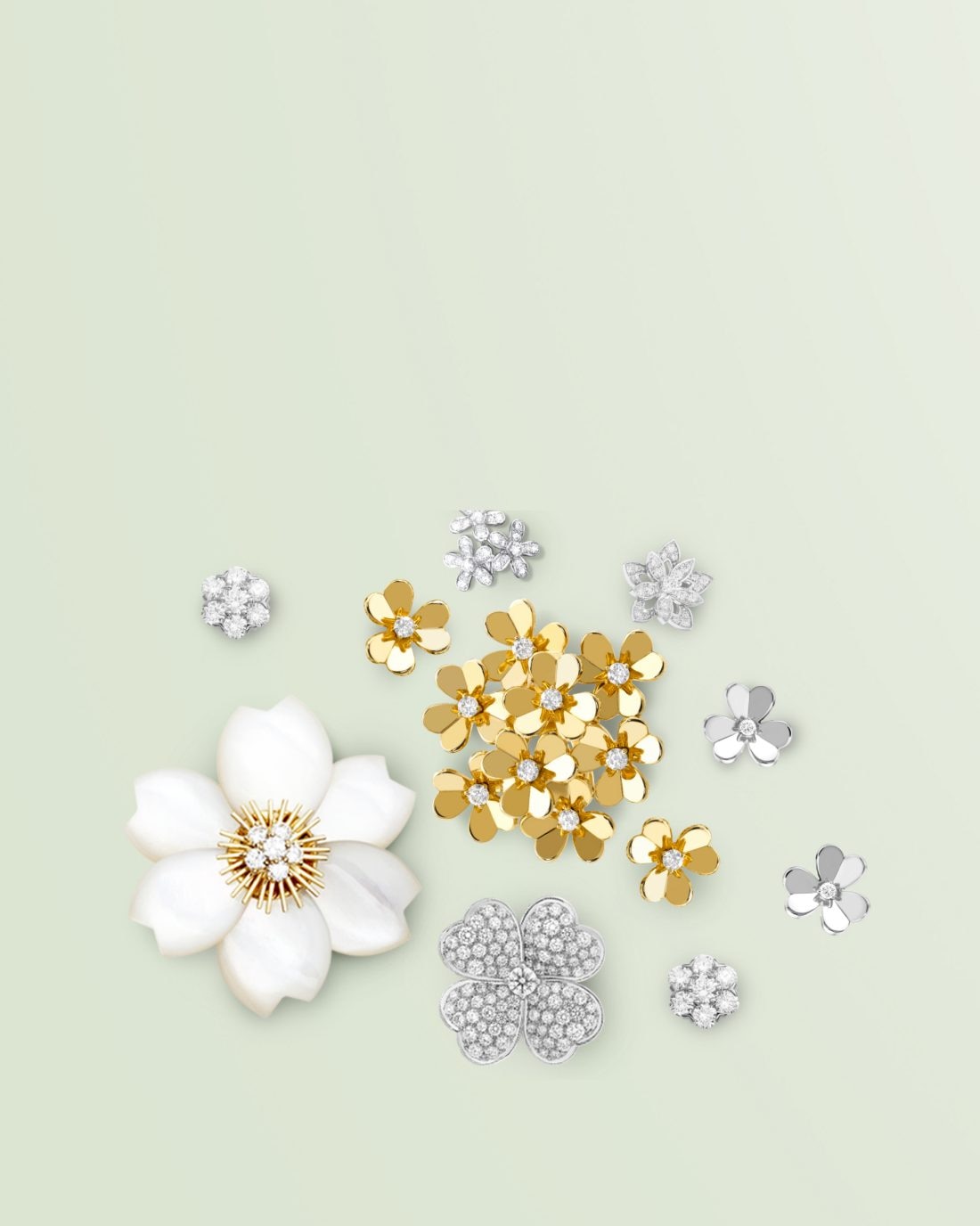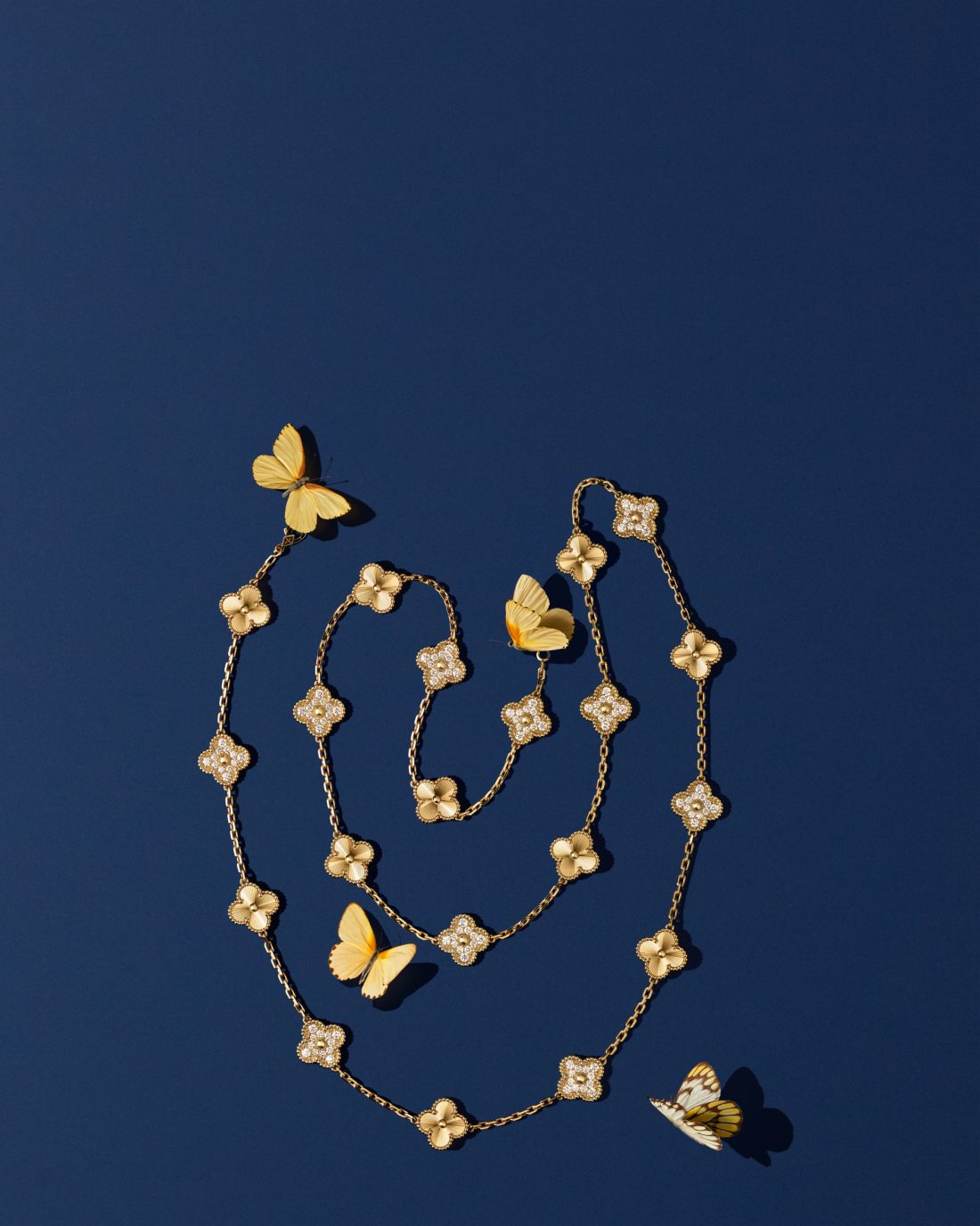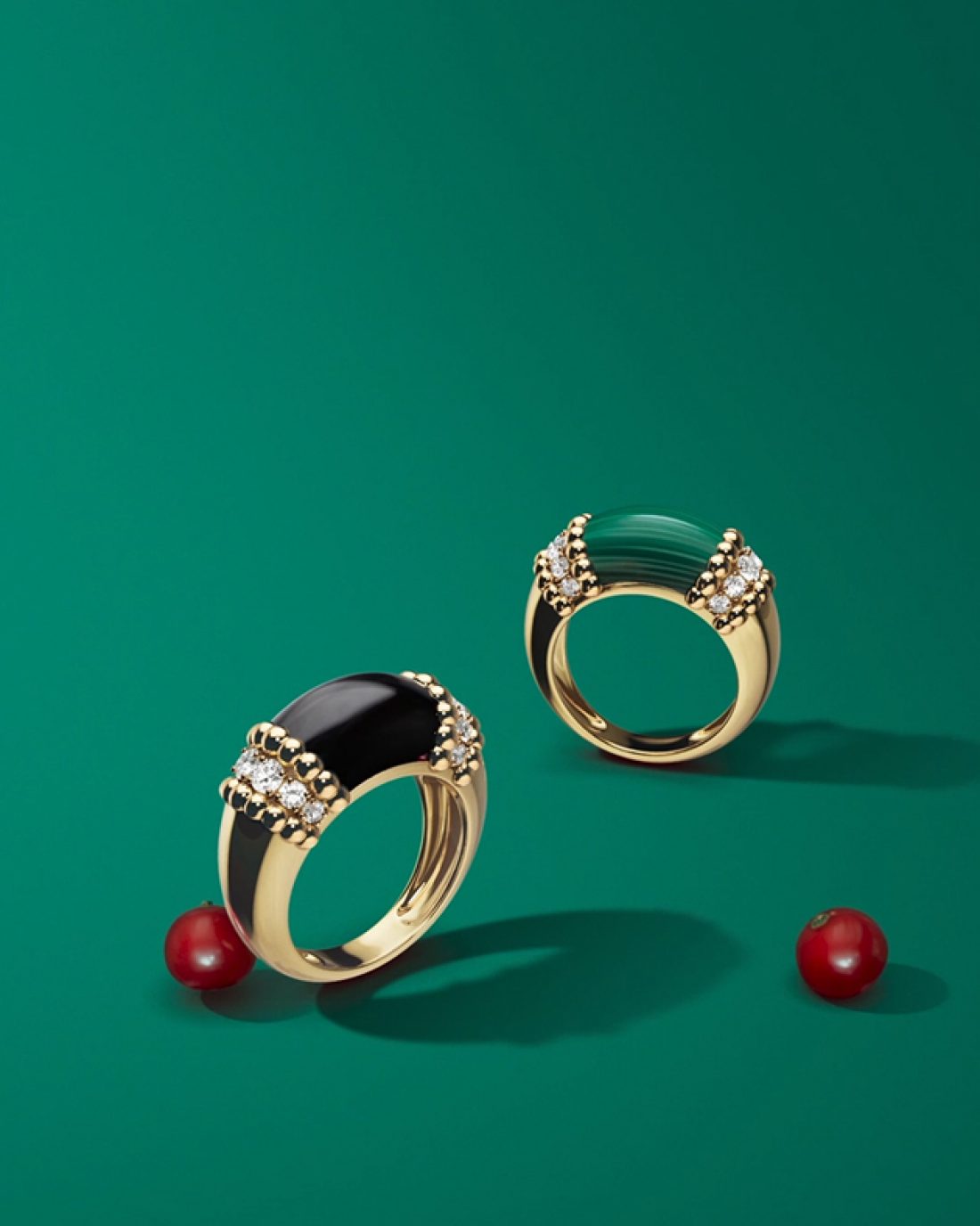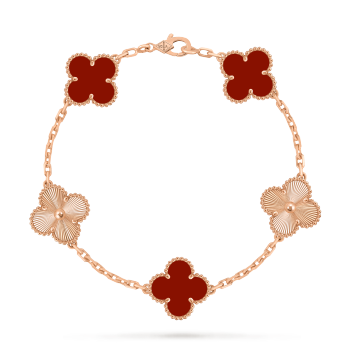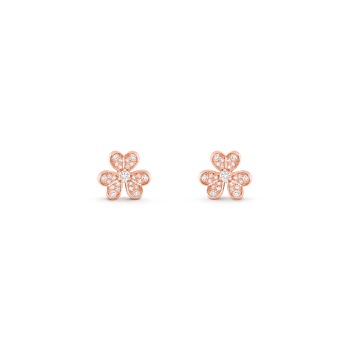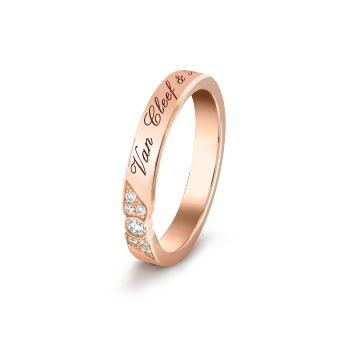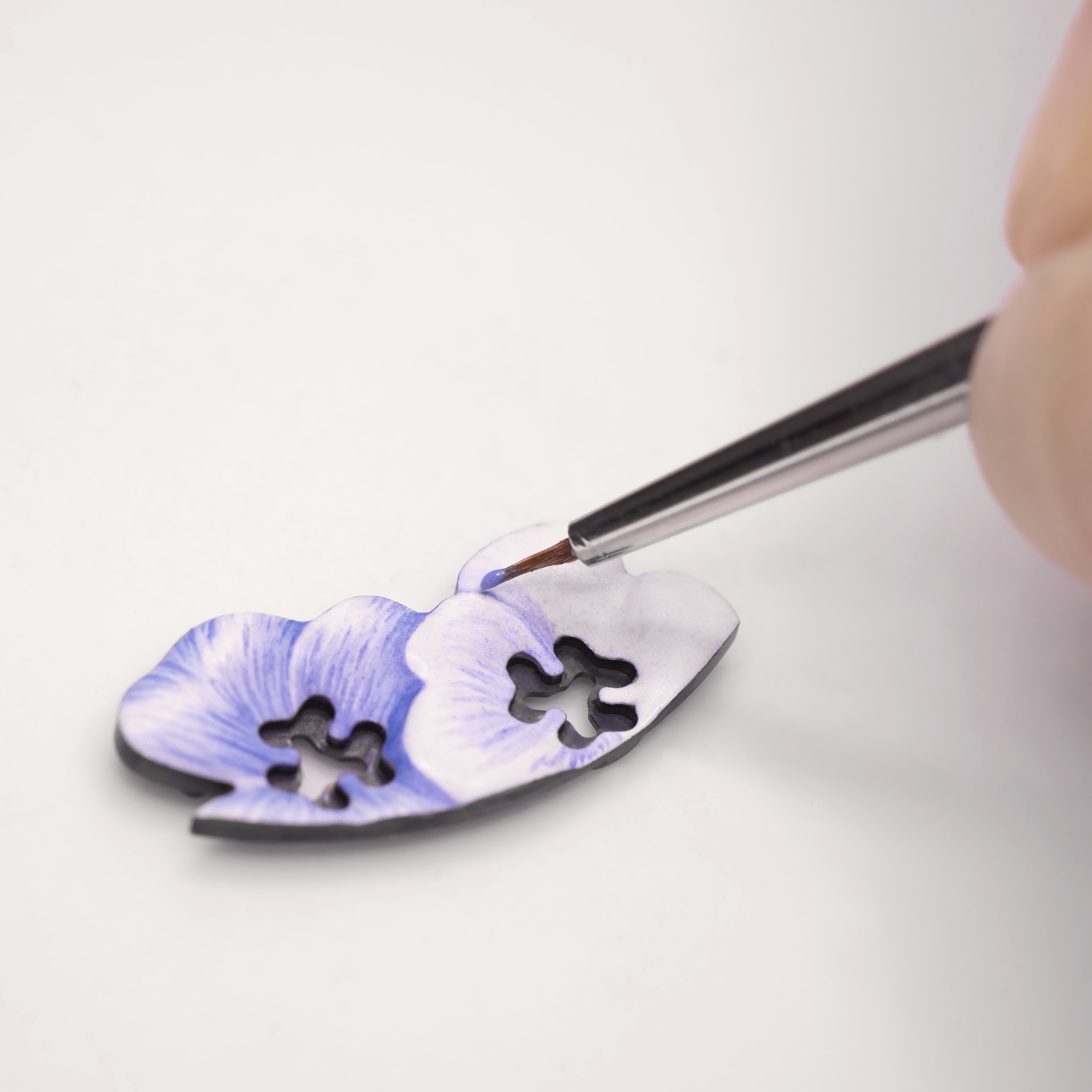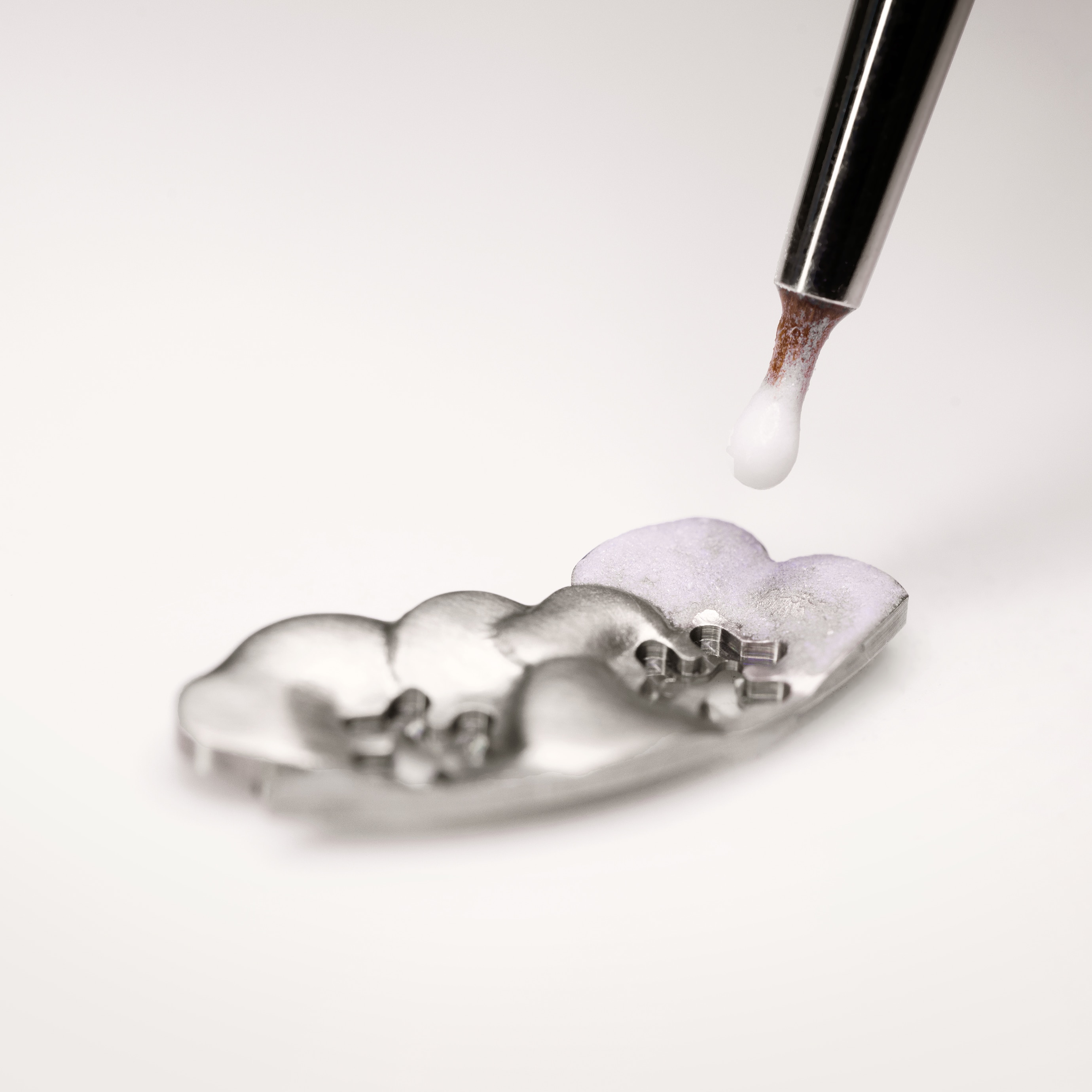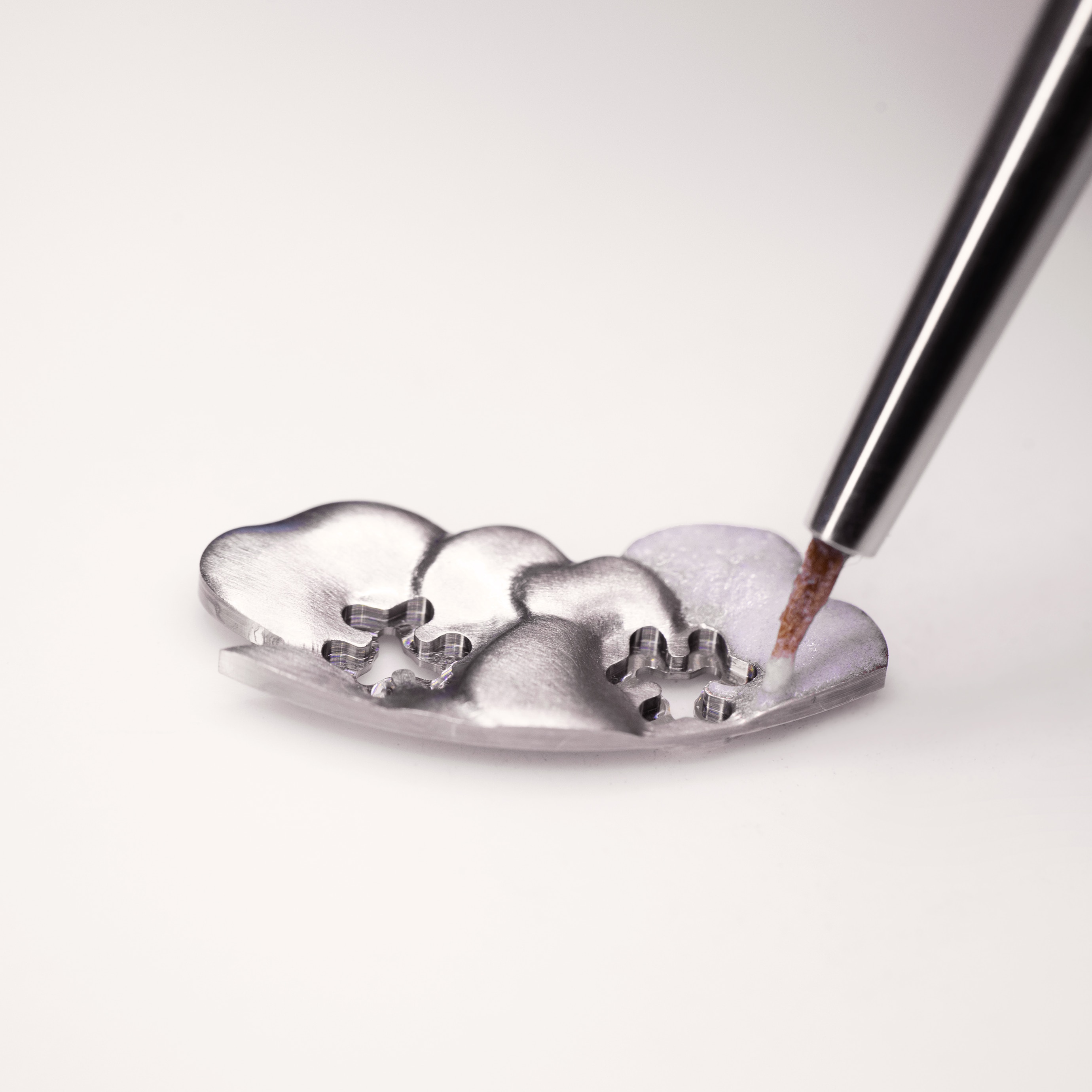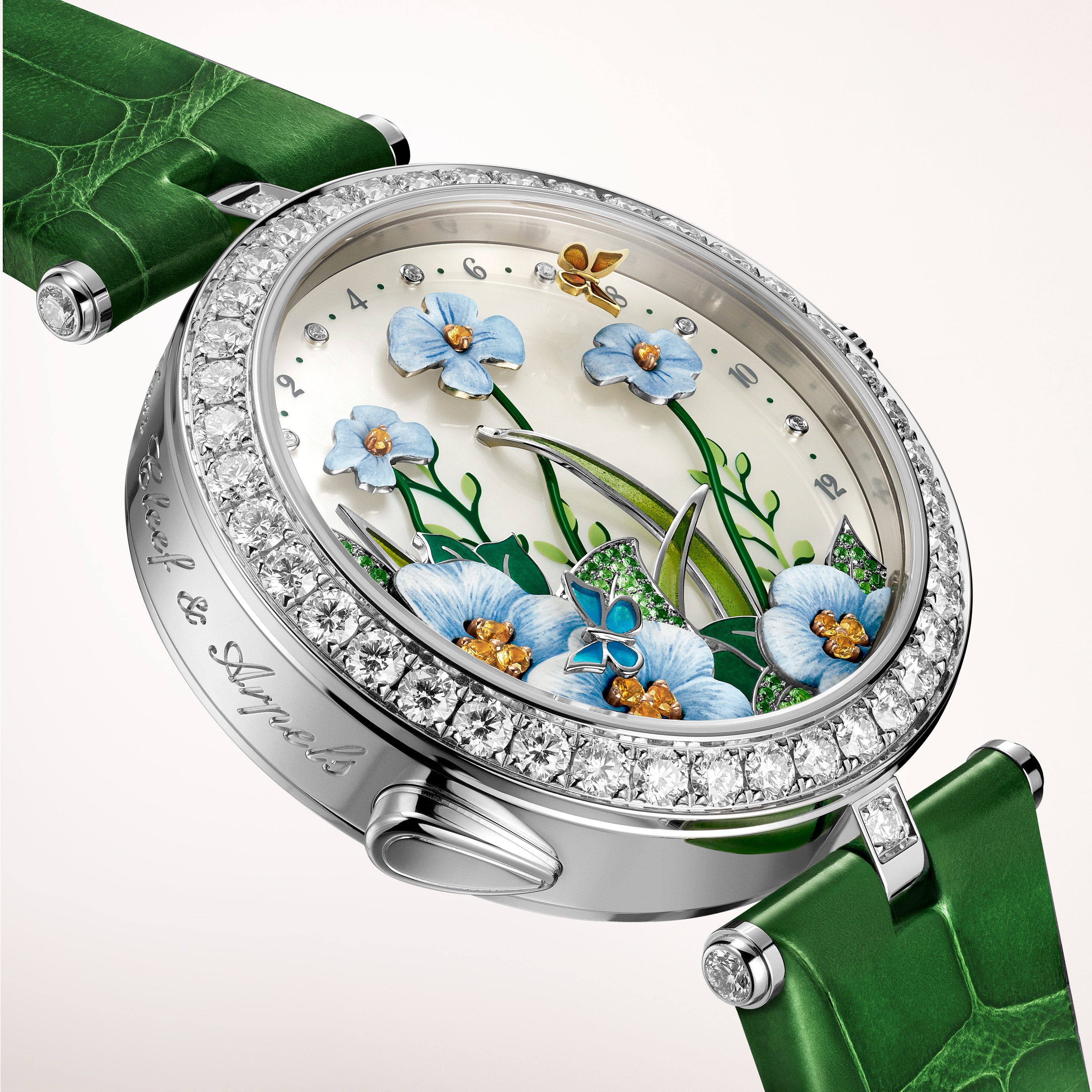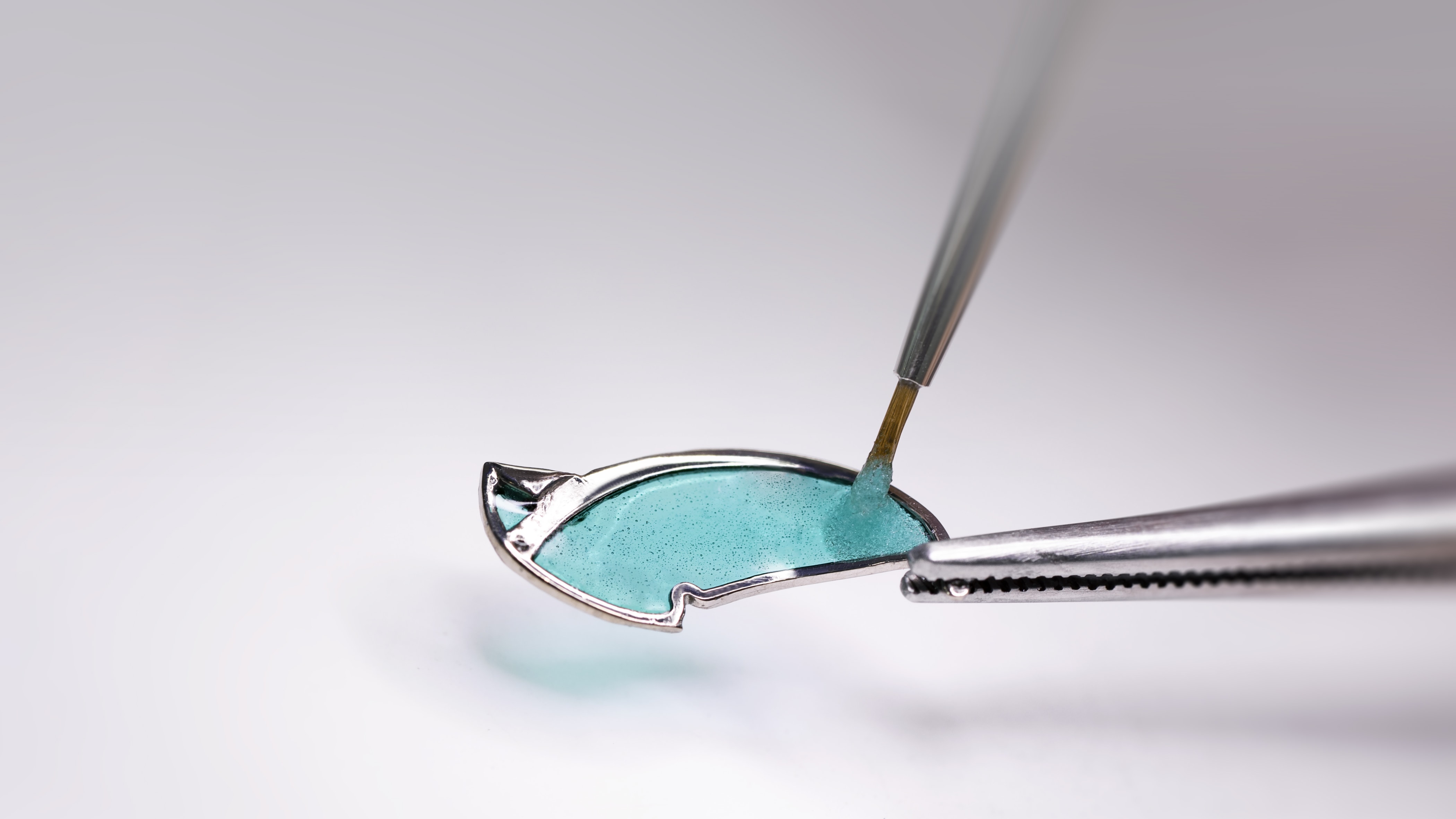
The art of enamel
Silica powder and pigments are kissed by the flame of the kiln to produce enamel, a veritable art of fire. A consummate series of steps bring enameled motifs to life, imbuing pieces with intense hues and profound brilliance.
In addition to ancestral methods, the Maison stands out in the development of enameling techniques, creating decorations imbued with relief and vitality.
Grisaille enamel
First developed in 16th-century France, the grisaille enamel technique uses two different shades to create chiaroscuro effects and a sense of perspective. Colored grisaille enamel follows the same process but with pastel tones.

Specially chosen for this nocturnal scene, grisaille enamel of the Lady Arpels Pont des Amoureux enables spectacular effects of light and shade to be created. Working on a very dark enameled background, the craftsman carefully traces out the scenery using a white powdered enamel known as “blanc de Limoges”. Thanks to this technique, the facades seem bathed in moonlight.
Plique-à-jour enamel
This métier d’art allows light to pass through the enamel like stained glass. An open-worked gold structure filled with thin layers of enamel forms the motif. Each of them is fired at temperatures of up to 800°C, revealing the intensity of the colors and ensuring their permanence.

On the Lady Féerie watch, this technique gives the fairy’s wings a transparent effect, accentuating her airy silhouette.
Setting in enamel
To give full expression to a miniature sculpture of delicately defined contours, the Maison developed several complex techniques. These approaches include setting in enamel, which involves setting precious stones within the plique-à-jour enamel with no other metal components. To perform this aesthetic exploit, the stone is exactingly positioned in an indentation deftly carved in the enamel. The piece is then re-fired according to a highly precise temperature curve to seal the composition. This process generates a remarkable “floating” effect that accentuates the glow of the precious stones.

The generous leaves in white gold, plique-à-jour enamel and diamonds, are set using the setting in enamel technique on the Lady Arpels Jour Enchanté watch.
Vallonné enamel
A variation on the previous technique, vallonné enameling consists of creating hill-like reliefs within the indentations cut into the base. This approach adds depth and subtle nuances of color to the decor, enhancing the dial with a sense of movement and vitality.
Created in vallonné enamel, the Lady Arpels Brise d’Été corollas display azure nuances complemented by spessartite garnet pistils.
Champlevé enamel
Prior to enameling, hollows are cut into a metallic base outlining the desired motif. Moist powdered enamel is then placed in these indentations and the piece is fired. The process is repeated several times, after which excess enamel is removed with a final sanding. This full design thus takes shape, dazzlingly defined by threadlike precious metal contours.

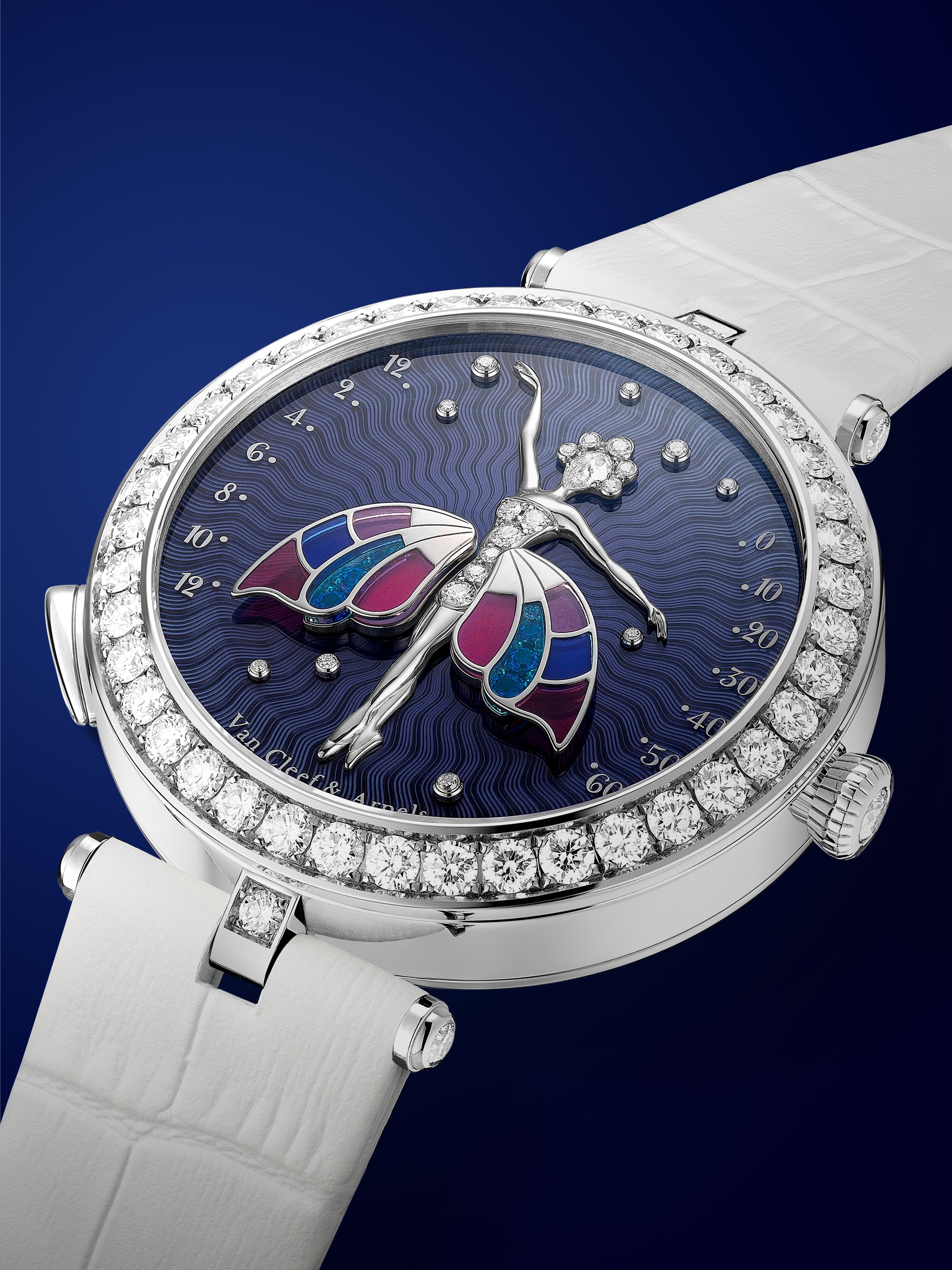
The dancer is dressed in a first fixed corolla in champlevé enamel, sapphires and diamonds on the Lady Arpels Ballerine Enchantée watch.
Façonné enamel
The Maison excels at fostering innovative enameling techniques that make it possible to create high-relief décors. Van Cleef & Arpels devised a technique for façonné enamel, a method which the Maison patented after 16 months of research and development. This process involves firing enamel powder and then meticulously sculpting it through whittling motions, sliver by sliver, to produce a three-dimensional form. The sculpted enamel is then carefully glazed at high temperature, resulting in a smooth and shiny finish. The full process creates a striking visual effect of volume and transparency.

The berries’ curved bodies and brilliant veneer of the Perlée Extraordinaire Fruits Enchantés Framboise watch are achieved by a technique of façonné enamel. Enamel powder is gently poured into a mold and then fired twice according to precise temperature profiles. The full process creates a striking visual effect that merges volume and transparency.
Scellé enamel
Technique developed by Van Cleef & Arpels, scellé enamel requires great expertise and mastery. Two pre-shaped enamel elements are assembled edge to edge through an extremely precise fusion process. Starting in a cold oven, the firing follows a defined temperature curve for about twelve hours, with several tiered rises and falls. This innovative process thus seals two enamels together without the use of glue or metal. The differently colored motifs then form a single relief ensemble, contrasted and finely demarcated.
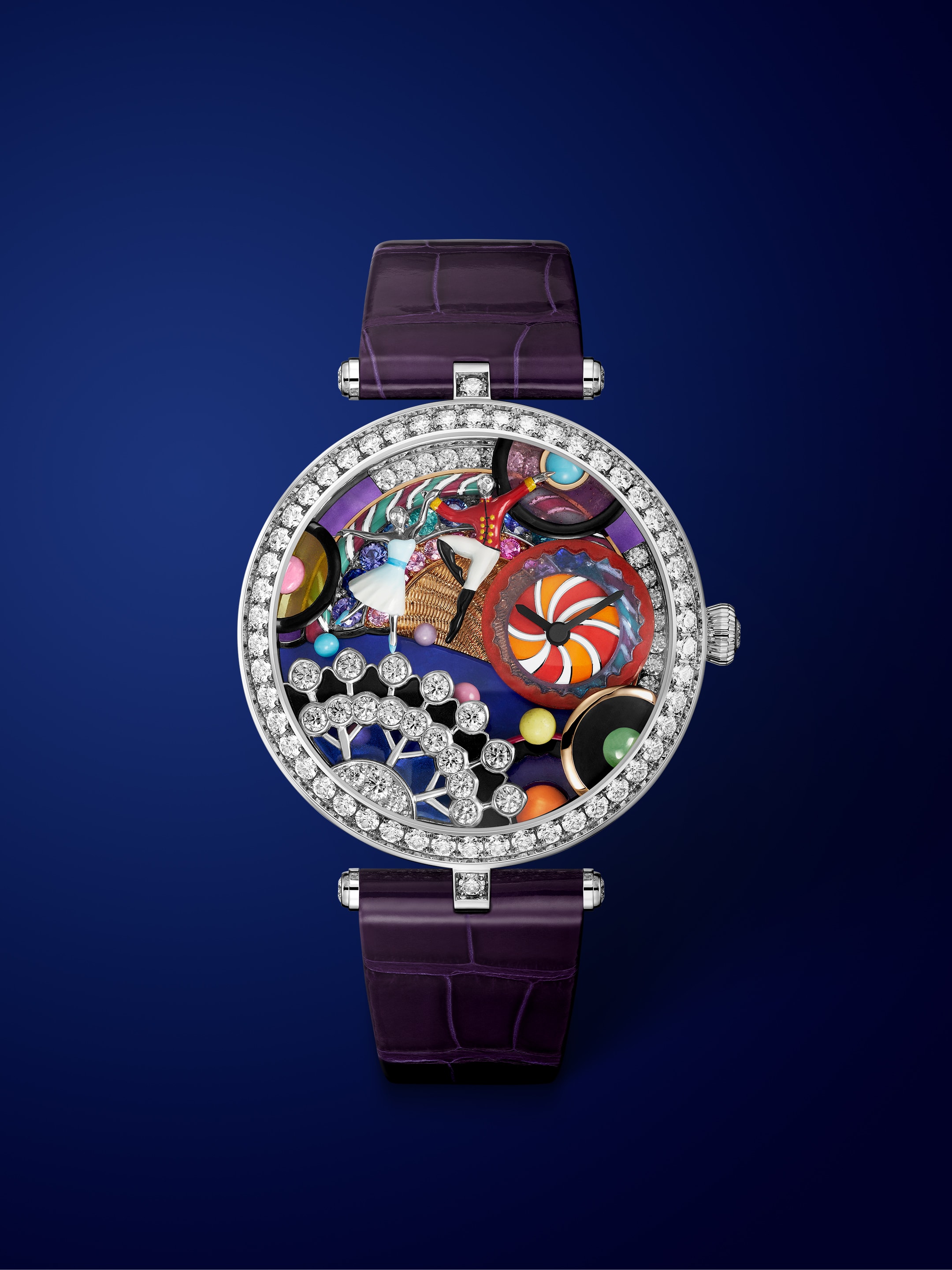
On the Lady Arpels Casse-Noisette watch, “Candies” in relief are embedded in the façonné enamel discs assembled using the scellé enamel process.
Cabochonné enamel
The cabochonné enamel technique entails the application of several thick coats to produce a rounded surface. This process leads to a pronounced effect of volume on the dial.
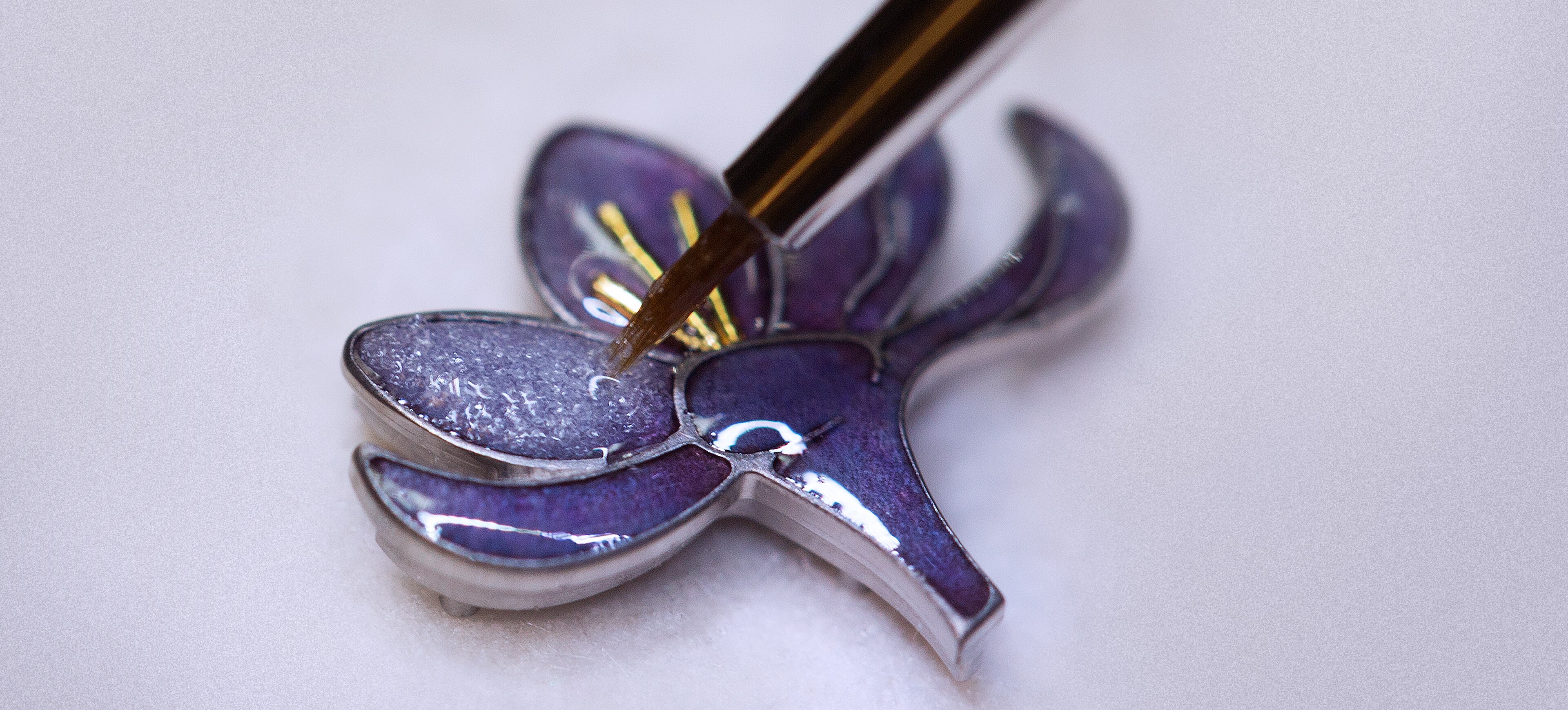
Expressing all the desire of a new romance, the Charms Extraordinaire Désir watch is adorned with lilac – synonymous with young love – and crocuses blooming on the dial thanks to cabochonné enamel work.
Paillonné enamel
The paillonné enamel technique consists of positioning a piece of foil, known as a “paillon", between two coats of enamel, giving the dial a transparent luminosity.
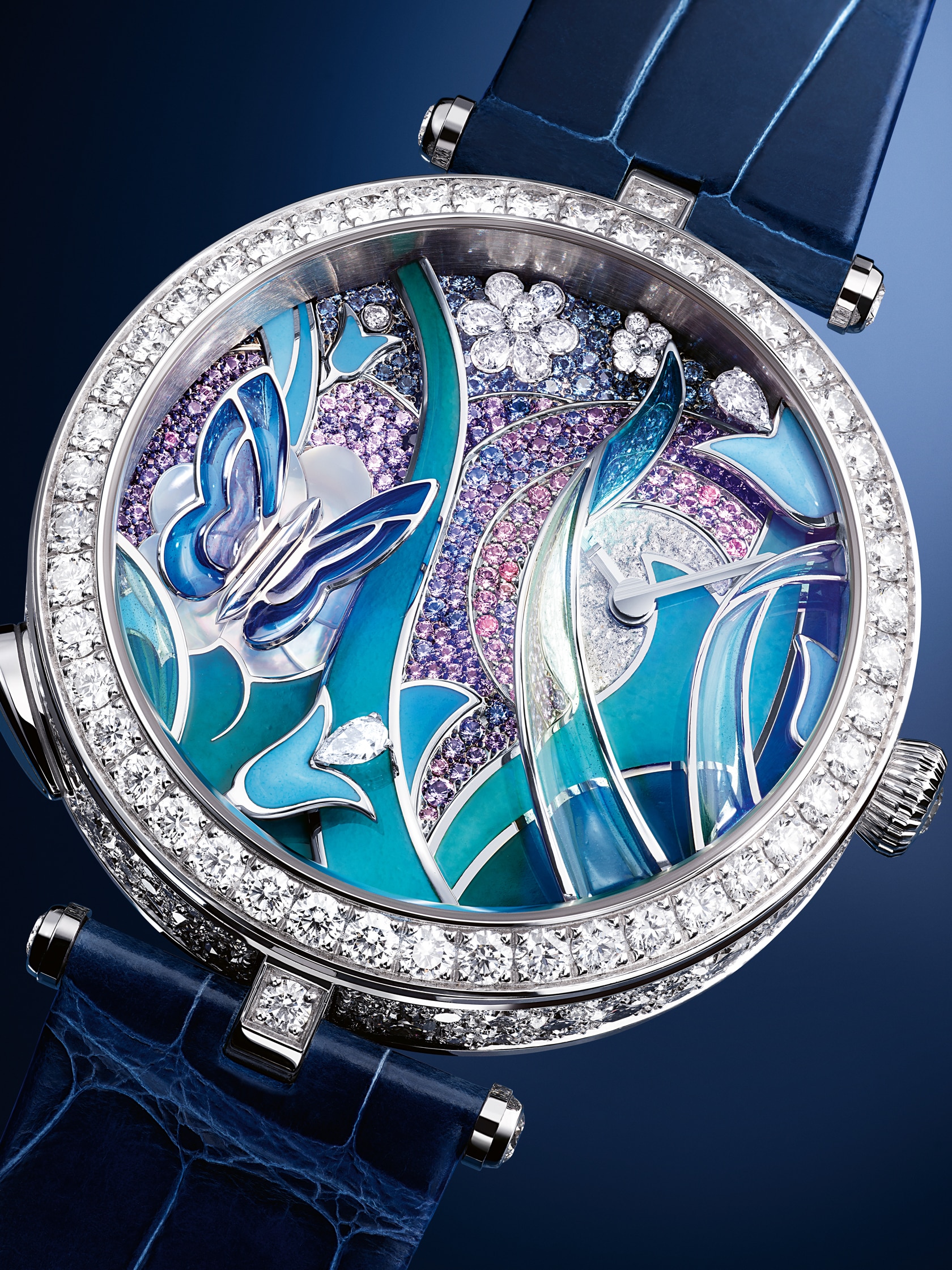
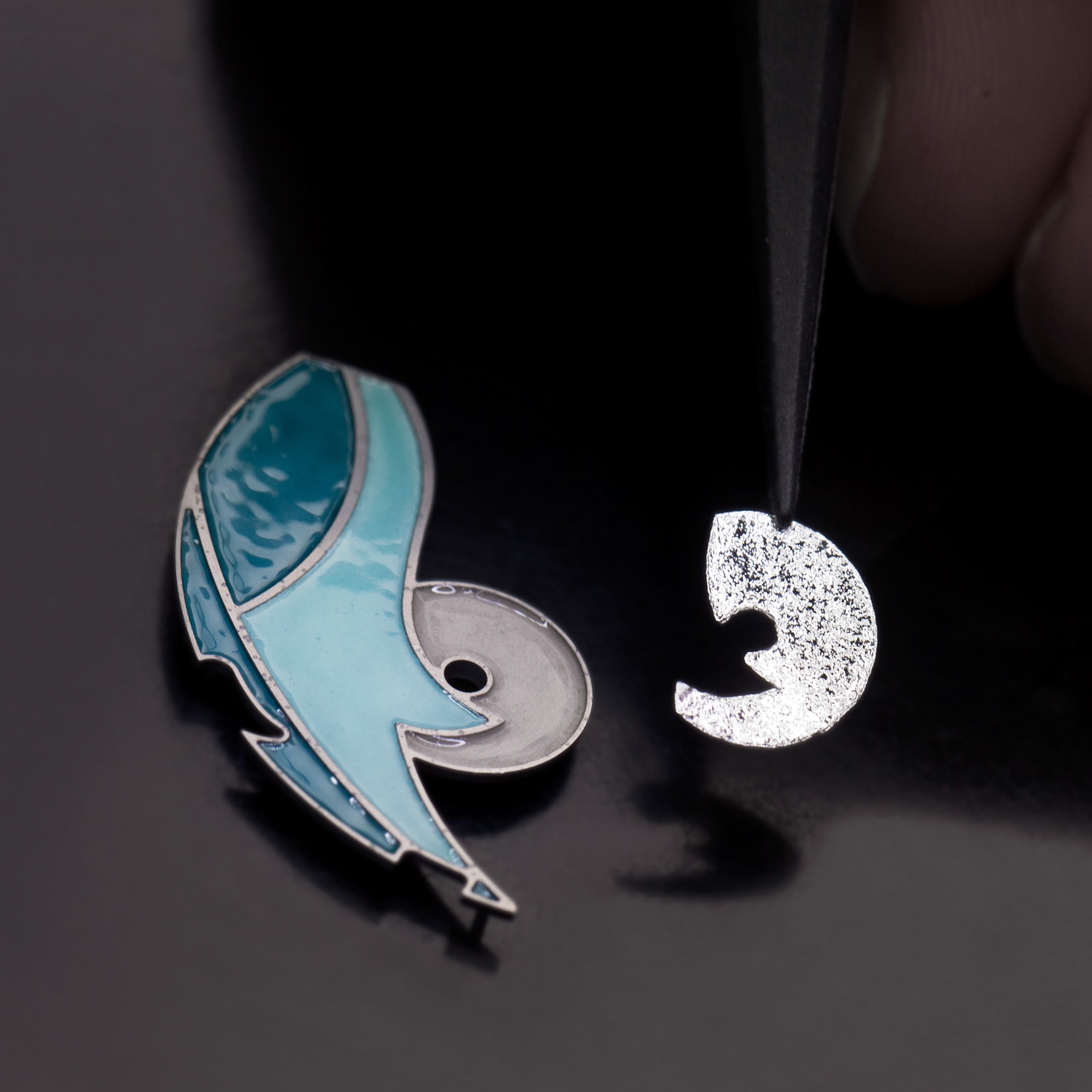
The Lady Arpels Papillon Automate background accentuates the sense of perspective: a moon in paillonné enamel is reflected in water set with blue, mauve and violet sapphires.
Enamel decal
Enamel decal is a time-honored form of savoir-faire that complements engraving work. Extreme precision is achieved through the use of vintage cast-iron machines and specific fitting methods developed by the Van Cleef & Arpels' Workshops. Using this technique, the story on the dial continues on the back of the watch.
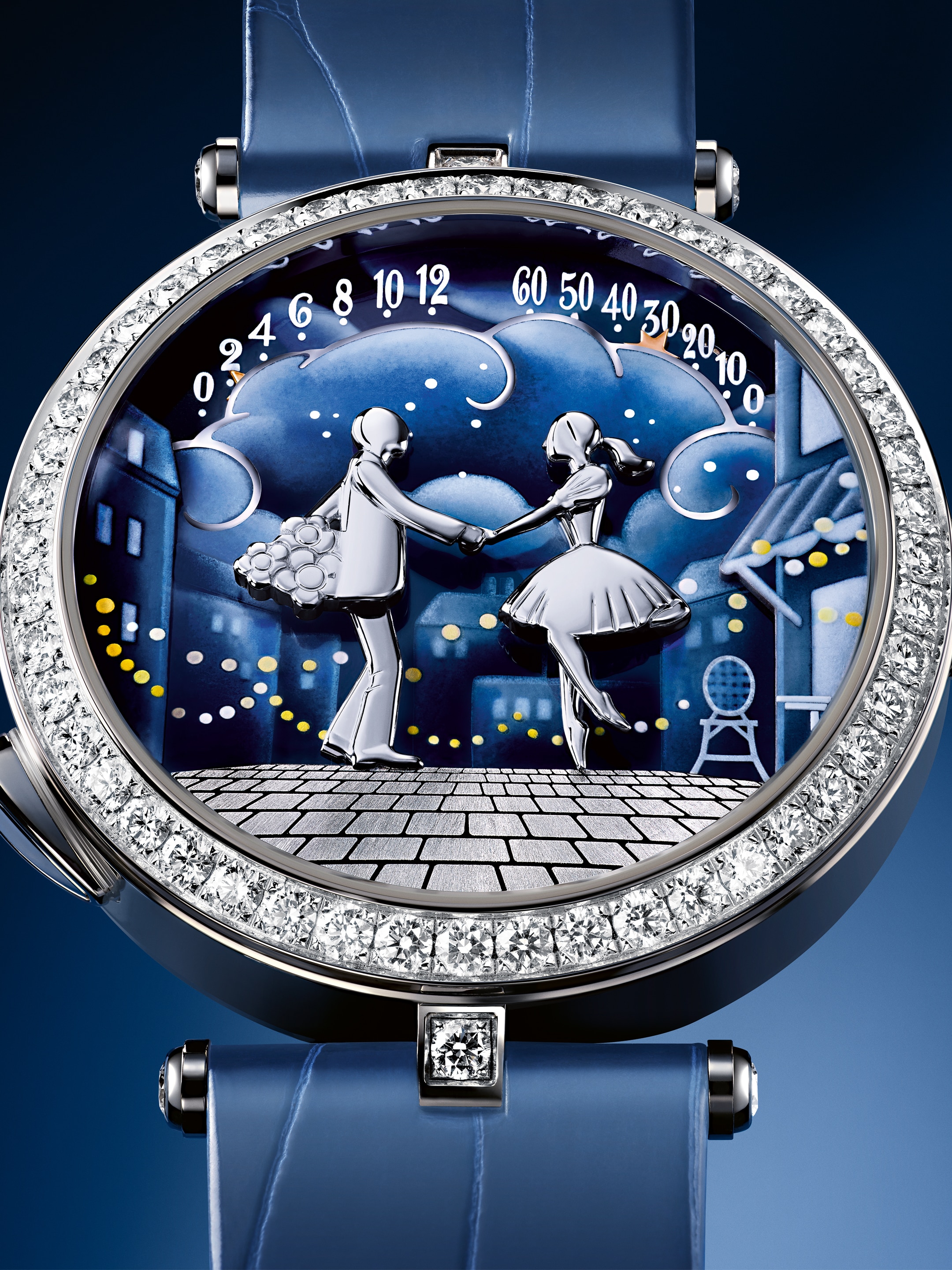
The Lady Arpels Bal des Amoureux Automate watch back case reflects the scene on the dial, thanks to a technique of enamel decal on sapphire glass. To achieve this magical effect, the craftsman creates an enamel design on a steel plate, before stamping this motif onto the sapphire crystal that protects the oscillating weight.
The precious decors comes to life
